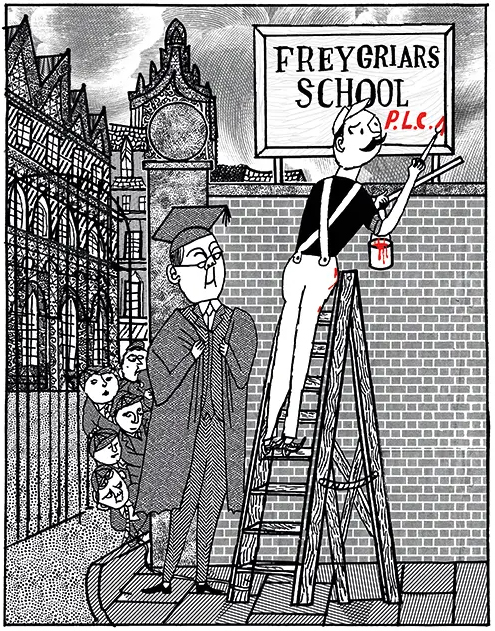Ever since the sudden and cruel imposition of VAT on independent school fees at the start of the year, much of the media focus has been on the number of school closures. The first to go have been prep schools and schools in rural areas far from London and the south-east. Trust me, this is really only the beginning.
Savvy parents have always known a reduction in those shiny buildings won’t matter that much in the end
Only a very small number of independent schools will be completely immune from the current financial pressures and – in the next couple of years – that will start to become increasingly obvious. While many might not close, there will be more mergers and acquisitions, and a scramble for schools to enjoy the benefits and protections of being part of a larger group. Several of those groups will be owned by overseas investors, excited to get their hands on a slice of British education that, to date, has widely been considered a globally prestigious product.
So what has the day-to-day impact of all this been for our schools so far? Well, you don’t have to look too closely to see evidence of belt-tightening as schools attempt to make savings rather than pass on the financial burden to already cash-strapped parents. Hefty fee increases are no longer an option for most schools. Instead, heads, governors and bursars have scrutinised their fixed costs. Staff salaries tend to be the largest outgoing and so that’s the natural place for cuts.
It’s easy to spot the telltale signs – small classes being merged, departing teachers not being replaced and niche (and sometimes not-so-niche) subjects being dropped. Modern foreign languages and Classics have been early victims. In some schools, boarding houses have been mothballed as numbers drop, building and refurbishment programmes have been put on hold, academic and support staff recruitment have stalled, and internal budgets are being closely monitored, if not frozen completely.
‘Nice-to-haves’ have had to be cast aside to ensure the essentials can be covered. These days, the Teachers’ Pension Scheme, long held to be an essential, falls into the ‘nice-to-have’ category. This erosion of pay and conditions is, in turn, leading to a slow but steady exodus of teachers from independent schools. Thirty years ago, a job in the independent sector was guaranteed to be more highly remunerated than the state sector. These days, independent sector salaries can barely keep pace with their state school counterparts. This makes it harder to recruit great teachers, in particular those who are willing to give up their evenings and weekends for boarding and extra-curricular duties.
In many ways, though, the mergers and acquisitions and the closer scrutiny of budgets is not a bad thing. Parents may well feel that it’s about time charitable schools were overseen by more business-minded groups who can ensure that their hard-earned fees are being spent wisely.
After all, many independent schools have been operating in a protected bubble for far too long. It’s hard to imagine any other sector where unpaid volunteers would be relied upon to oversee organisations with several million-pound turnovers at a meeting once every three months. And heads, still mostly teachers who have risen through the ranks with barely any business training or experience, have had to master the skills of being a CEO quickly. Similarly, finding governors with the time, calibre, skills and experience, not to mention the courage, to throw themselves into the firing line is unsurprisingly becoming ever more challenging.
A year ago, I wrote an open letter to Keir Starmer outlining my fears about the potential impact of VAT on fees. I wrote about the loss of jobs and subsequent damage to local communities. Those predictions are already coming true. Whatever your views on independent education, there are no obvious winners in this scenario. State schools have not yet benefited in any -noticeable way from the income raised from VAT and will feel the pressure – particularly as many children with additional needs trickle back into the system this month. Likewise, as independent schools are forced to look ever more inward, bursaries, scholarships and community outreach programmes will diminish.
What about the future? Well, the independent sector will survive as it always has done. The larger, well-endowed schools will thrive and the smaller prep and senior schools that have acted quickly will form groups and find economies of scale.
Schools might not have the wealth of resources they had before. But, as savvy parents have always known, a reduction in those shiny buildings won’t matter that much in the end. They rarely make any tangible difference to pupil outcomes: enthusiastic, energetic and motivated teachers do. It is, and always has been, about the school staff and their ability to know, care for and invest time in every single pupil. That’s what made parents choose the independent sector in the first place and that’s what makes an independent education a privilege. I hope that independent school leaders and governors can hang on to those principles.
In the meantime, as the start of a new academic year approaches, heads, bursars and governors are still in the eye of the storm, waiting to find out what the full scale of the damage will be.







Comments